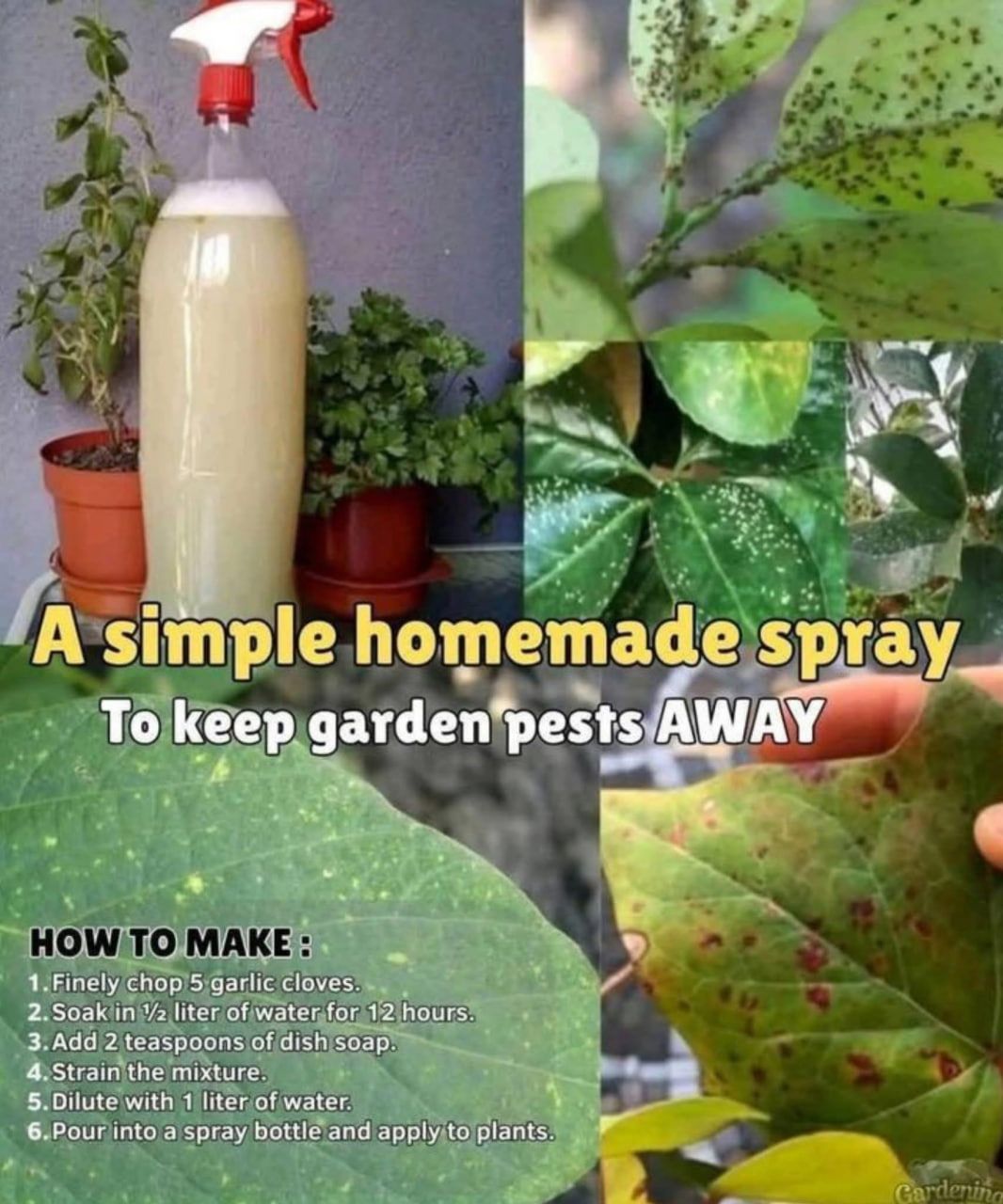Continued on the next page
3. Vegetable Oil Insecticide
Ingredients
1 cup vegetable oil (canola, sunflower, etc.)
¼ cup mild dish soap
1 tsp of this concentrate per 1 L (4 cups) water
Instructions
Whisk oil and dish soap in a bowl until emulsified.
Measure 1 tsp of the emulsion into a spray bottle.
Fill the bottle with 1 L water, cap, and shake thoroughly.
Spray coverage on leaves and stems where pests congregate.
How It Works
Oil smothers insect eggs, larvae, and adults by blocking their spiracles (breathing pores). The soap keeps the oil suspended in water for even application.
Pro Tips & Best Practices
Test First: Spray a small patch and wait 24 hours to ensure no phytotoxic reactions.
Apply Evenly: Thorough coverage—especially leaf undersides—is key to effectiveness.
Time It Right: Spray early morning or late afternoon to avoid sunburn on softened foliage.
Rotate Sprays: Alternate between recipes weekly to prevent pest resistance.
Store Properly: Keep homemade sprays in a cool, dark place; use within 1 week.
Troubleshooting & Warnings
Leaf Damage? Dilute further or shorten contact time; avoid spraying during heat waves.
Poor Pest Control? Increase application frequency to twice a week; check for eggs and manually remove heavy infestations.
Soap Residue? Rinse plants with plain water 24 hours after application.
Essential Oils Alternative? Add a few drops of neem or peppermint oil to boost repellent power.
Frequently Asked Questions
1. Will these sprays kill beneficial insects?
No—when used judiciously, these recipes target soft-bodied pests. Avoid spraying flowers to protect pollinators.
2. How often should I reapply?
Every 5–7 days, or after heavy rain. For heavy infestations, apply twice weekly until pest numbers decline.
3. Can I mix these recipes together?
It’s best to keep them separate. Combining garlic and oil may reduce soap’s emulsifying effectiveness.
4. Are these sprays safe for edible crops?
Yes—rinse produce before harvest. All ingredients are food-grade and non-toxic.
5. What if my plants still have pests?
Inspect for eggs, remove manually, and consider companion planting with marigolds or basil to deter reinfestation.
Conclusion
By using these natural sprays in rotation, you’ll maintain a healthy, balanced garden free from harsh chemicals. Experiment with each recipe, tailor concentrations to your plants’ needs, and enjoy a vibrant, pest-resistant landscape—all while protecting the environment and your family’s health.
Continued on the next page
ADVERTISEMENT

